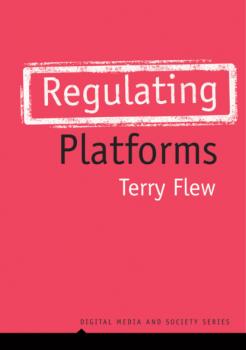John Wiley & Sons Limited
Все книги издательства John Wiley & Sons LimitedInnovation and Export
The concepts of innovation and export are traditionally considered in isolation, both within companies and within the support organizations dedicated to them. As a result, within this broad research field, very little academic work has focused on how to implement their relationship at an operational level. This book proposes a joint diagnostic tool for SMEs, highlighting good practices to be mastered in order to simultaneously improve innovation and export performance, in the form of a virtuous circle. Innovation and Export focuses on the integration of innovation and export into the strategic management of SMEs, for which the use of synergies is a powerful lever to overcome any difficulties in mobilizing significant resources.
Diagnosis and Fault-tolerant Control Volume 2
This book presents recent advances in fault diagnosis and fault-tolerant control of dynamic processes. Its impetus derives from the need for an overview of the challenges of the fault diagnosis technique and sustainable control, especially for those demanding systems that require reliability, availability, maintainability, and safety to ensure efficient operations. Moreover, the need for a high degree of tolerance with respect to possible faults represents a further key point, primarily for complex systems, as modeling and control are inherently challenging, and maintenance is both expensive and safety-critical.<br /><br /><i>Diagnosis and Fault-tolerant Control 2</i> also presents and compares different fault diagnosis and fault-tolerant schemes, using well established, innovative strategies for modeling the behavior of the dynamic process under investigation. An updated treatise of diagnosis and fault-tolerant control is addressed with the use of essential and advanced methods including signal-based, model-based and data-driven techniques. Another key feature is the application of these methods for dealing with robustness and reliability.
Posthuman Feminism
In a context marked by the virulent return of patriarchal and white supremacist attitudes, a new generation of feminist activists are continuing the struggle: these are very feminist times. But how do these and other movements relate to the contemporary posthuman condition? <br /> <br /> In this important new book, Rosi Braidotti examines the implications of the posthuman turn for feminist theory and practice. She defines the posthuman turn as a convergence between posthumanism on the one hand and post-anthropocentrism on the other, and she examines their complex relationship and joint impact. Braidotti claims that mainstream posthuman scholarship has neglected feminist theory, while in fact feminism is one of the precursors of the posthuman turn, through diverse social movements and political traditions. <i>Posthuman Feminism</i> is an analytic and creative response to contemporary conditions and a call to action. It highlights the constraints but also the potentialities available to feminist political subjects as they confront the ever-growing injustices of sexism, racism, ecocide and neoliberal capitalism. <br /> <br /> This bold new text by a leading feminist philosopher will be of great interest to students and scholars throughout the humanities and social sciences.
Regulating Platforms
We once thought of cyberspace as a borderless world. As the internet has become increasingly platformized, with a small number of technology giants that dominate the global digital economy, concerns about information monopolies, hateful online content, and the impact on media content creators and creative industries have become more marked. Consequently governments, politicians, and civil society are questioning how digital platforms can or should be regulated. In this up-to-the-minute study, Terry Flew engages with important questions surrounding platform regulation. Starting from the premise that governance is an inherent feature of digital platforms, he argues that the challenge is to develop the best frameworks for balancing external regulatory oversight with the internal governance practices of platform companies. The intersection of media policy, information policy, and economic policy is an important element of policy frameworks, as national authorities increasingly seek to engage with the power of global digital platforms. Lively and accessible, Regulating Platforms is a go-to text for students and scholars of media and communication.
Evolution of Social Ties around New Food Practices
We live in a world of major disruption, where the individual and the collective stand in opposition against the backdrop of globalization, digital revolution, community development, growing concerns around health and the planet, and now an unprecedented global health crisis.<br /><br />This book explores how these phenomena influence the social ties that surround food and the way we eat together. Extensive research is presented on institutional recommendations concerning eating together, the role of online communities in supporting weight loss, the perceived consequences of diets, the social phenomena involved in vegetarianism, market segmentation in the case of ritual and religious practices, and the rising tendency to «buy local» and to value local identity. As the Covid-19 crisis adds to the complexity of these issues, its impact is also taken into account.<br /><br />For both interested readers and the many players involved in the agri-food industry, these reflections shed light on the current developments in «eating together».









